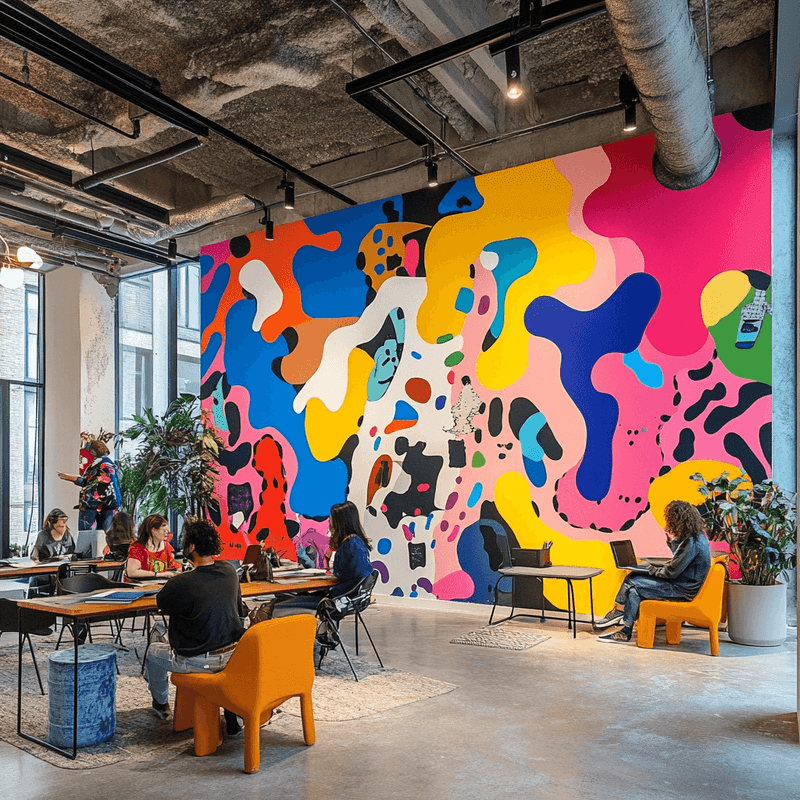
With the rapid evolution of working patterns in recent years, particularly through the rise of telecommuting, many companies in the service sector are finding themselves with unoccupied or at least under-occupied offices. All major cities and regional metropolises are no exception. Office buildings as they were designed just a few years ago no longer meet current demand. Real estate developers beg to differ.
These vacant spaces, once symbols of productivity and even power, are now becoming a burden for companies. And yet, in the current economic climate, every square meter can become a real financial lever. Why not turn unused office space into a source of income? Sub-letting office space is a solution that not only makes these spaces profitable, but also meets the flexibility needs of other companies. Whether you're a fast-growing start-up, an SME or a large corporation, space-sharing offers financial, ecological and collaborative advantages. We'll tell you all about it!
Financial optimization: Turning liabilities into assets
Vacant offices represent fixed costs (rent, maintenance, heating, electricity) which, in the absence of occupants, weigh directly on company budgets. By subletting your workspace, you generate a new source of income that can reduce these costs and even generate profits. However, there are a few conditions to be met, depending on the location, layout and services included (Internet access, meeting rooms, maintenance)... You can expect to pay between 250 and 550 euros per workstation per month. A real bargain!
These revenues can be used to finance all or part of the services on offer, or to offer others, and to stand out from the crowd. In a context where financial agility is crucial, this approach also makes it possible to compensate for temporary drops in activity.
Ecological impact: contributing to the ecological transition
Sub-letting office space is also part of an ecological approach. By sharing under-utilized space, companies help to reduce the carbon footprint of their buildings - talk to your CSR manager. Each space transformed into a shared office reduces the need for resources and energy. It's worth noting, however, that the best solution is to rent smaller spaces and complement your real estate strategy by renting flexible workspaces.
This environmental impact is all the more relevant today, as companies seek to integrate more responsible practices. Converting offices into shared space means maximizing the use of existing infrastructures while limiting the ecological footprint.
Creating a dynamic business ecosystem
Sub-letting office space goes beyond the financial aspect. By welcoming companies from other or complementary sectors, you create a collaborative ecosystem within your premises. This type of environment enables exchanges, collaborations and even potential partnerships. Imagine the wealth of ideas and opportunities that can arise from a simple coffee break between employees from different companies.
This model is particularly interesting for companies that value innovation and openness. Subletting office space also opens the door to new ideas, varied expertise and a stimulating working environment.
Subletting office space: a flexible and secure solution
Legality and simplicity are two major concerns for companies considering subletting their office space. With platforms like workin.space, you can offer your office space in a totally legal way, thanks to a service contract rather than a classic sublease. This gives you total flexibility over the length of the contract, the number of positions available and even the number of days you can occupy per week.
Office subleasing thus offers the potential for financial optimization, a concrete ecological contribution, and the possibility of creating a work environment enriched by professional synergies. Turning your offices into a source of income means tapping into a wealth of opportunities while supporting sustainable, collaborative practices. Who can beat that? We do, because with platforms like workin.space, you have all the tools you need to maximize the potential of your unoccupied spaces, and give your offices a new dimension!
-
How do companies assert their identity in a shared space?

12/05/2025 How do companies assert their identity in a shared space?
Coworking spaces are places designed for the collective: so how can a company assert its own identity? While flexible space brands strive to be recognizable and identifiable among a thousand, they also enable their occupants to make their own workspaces their own.
-
Coworking: how to create, open and run a shared workplace?

03/05/2025 Coworking: how to create, open and run a shared workplace?
Coworking spaces are springing up all over France. How do they emerge today, and what room is left for new entrants to the flexible workspace market?
-
Coworking: how to prepare employees for flexible working?

03/04/2025 Coworking: how to prepare employees for flexible working?
As coworking spaces win over more and more employees, how can companies support this shift towards greater flexibility, without losing cohesion or performance? Here are a few tips!